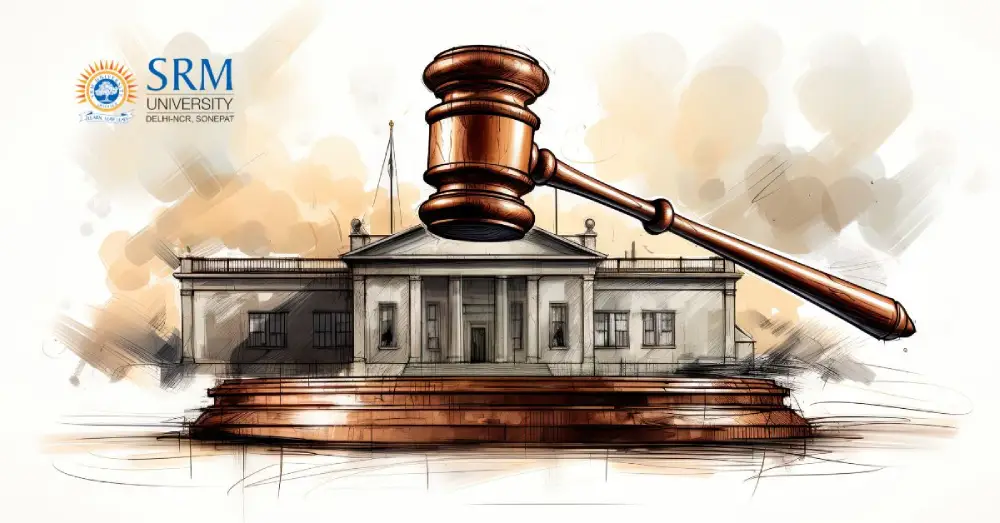
Top Colleges for LLB in India 2025-26
Introduction
The legal world is changing faster than ever before. Traditional fields like criminal and corporate law remain vital. On the other hand, new specialisations are coming up to solve the biggest challenges that we face today. One of the most important and fast-growing trends is climate law.
India is rapidly improving its green finance and climate law frameworks. The goal is to support the net-zero emissions target by 2070. India needs huge funding to meet the Nationally Determined Contributions under the Paris Agreement. The estimated requirement is nearly $2.5 billion by 2030.
This is not just about memorising environmental rules. Climate law focuses on legal knowledge with real-world problem-solving to protect our planet, promote sustainability and fix climate change head-on. For law students studying at top colleges for LLB in India, it is a chance to make a genuine difference and build a future-ready career.
What Exactly Is Climate Law?
Climate law is all about how we protect the planet with rules and agreements. It looks at how countries, companies, and communities deal with climate change. The field focuses on the following topics:
- Cutting down pollution
- Protecting natural resources
- Conserving biodiversity
- Promoting clean energy.
This is not a problem that will be seen shortly. Climate change is happening now. We see it in floods, droughts, rising seas, and damaged ecosystems. The law provides students with a framework to take the needed action, set limits, and hold polluters responsible.
All over the world, agreements like the Paris Agreement help countries to reduce greenhouse gas emissions. In India, laws like the Energy Conservation Act set the standards for energy use and efficiency. Climate lawyers study these laws, apply them and work to improve them so that they can make a major impact.
Why Is Climate Law So Important for Future Lawyers?
Climate law is a special field where you can combine a love for the environment with real legal work. It connects science, human rights, economics and global cooperation.
If you are curious about what a career in this field looks like, climate lawyers usually do the following things:
- Draft regulations to protect the environment and reduce pollution
- Represent communities that are most affected by climate disasters like floods and droughts
- Advise companies to meet their environmental, social and governance goals
- Take legal action against polluters and governments that fail to meet the climate objectives.
Students from top colleges for LLB in India often graduate with a strong knowledge of environmental law, public policy and international law. This gives them the right expertise to step into this important and fast-changing field of law.
The Trends Driving Demand for Climate Lawyers
Several trends are creating an urgent need for climate law experts:
- Governments are passing stricter laws to cut emissions and protect biodiversity
- Companies are using ESG frameworks and need legal advisors to guide them
- Communities and activists are taking more cases to court
- Climate change affects everyone, so lawyers need to explore local and international laws.
Students who are aware of these trends early on are better positioned to work in Indian and international environments.
Skills You’ll Need to Succeed in Climate Law
Being a climate lawyer is not just about knowing the law. You need to think broadly and adapt quickly. Some of the most important skills are marked below:
- Understanding fast-changing laws and policies
- Linking law with science, economics, and policy
- Working with governments, NGOs, companies, and communities
- Knowing about international agreements
Career Paths in Climate Law
Climate law opens doors for different careers:
- Government legal roles: For students who will be involved in government legal roles, they advise on policy and draft environmental legislation
- Corporate counsel: Businesses are made aware to stay compliant and adopt sustainable practices.
- NGO and advocacy work: Professionals represent the communities and push for stronger protections.
- International organisations: Students from the top colleges for LLB in India work with the UN, World Bank, and global climate bodies.
The work is meaningful and increasingly in demand, irrespective of the path you select. Average salaries for environmental law professionals are between INR 8 LPA to INR 15 LPA for top performers and those in international roles.
Why Climate Law Will Keep Growing
As the world moves towards net-zero emissions and shifts from fossil fuels to renewable energy, climate law will only grow in importance. Businesses need help following the rules. Governments need skilled legal advisors. Communities need advocates to protect their rights.
For law graduates, it can be a stable career with global opportunities. It is also a chance to make a real and positive difference in the world.
Studying Climate Law at SRM University Delhi-NCR, Sonepat
SRM University Delhi-NCR, Sonepat, is one of the top colleges for LLB in India, which focuses on climate change and environmental law. Students can get the practical exposure via case studies, internships, and moot courts, along with research opportunities.
By the time students graduate, they are not only ready for traditional legal careers but also have the skills to take on specialised roles in climate law. This is in the form of combining legal skills with a passion for environmental protection.
FAQ
Why is climate law important now?
Legal systems are needed to manage the risks and responsibilities as climate change affects different parts of life.
What subjects help build a career in climate law?
Environmental law, international law, public policy and sustainable development are crucial subjects to build a career in climate law.
Are there global opportunities in climate law?
Yes, many international organisations and NGOs hire climate law experts for global projects.
Why choose top colleges for LLB in India for climate law?
The top colleges for LLB in India for climate law offer strong academic knowledge, practical training and exposure to international laws and policies.
Source link



